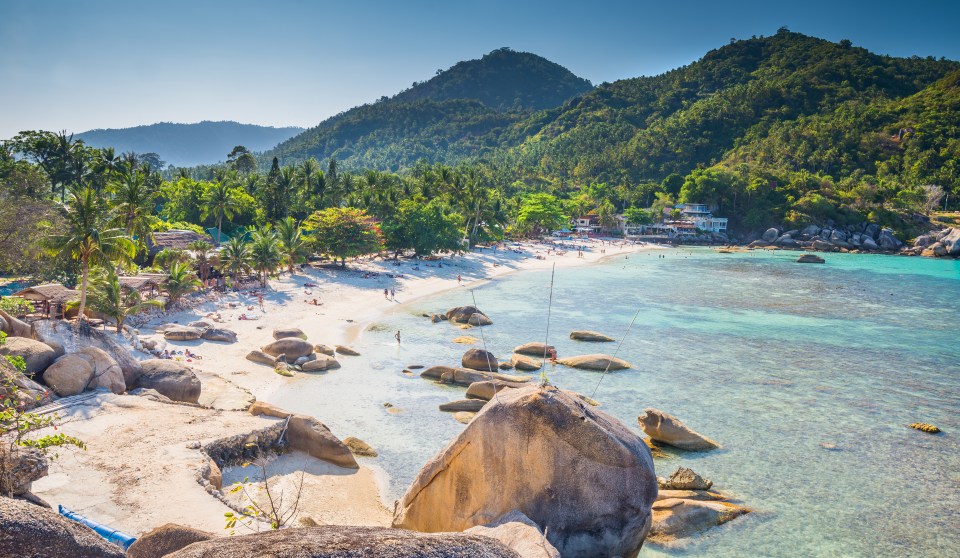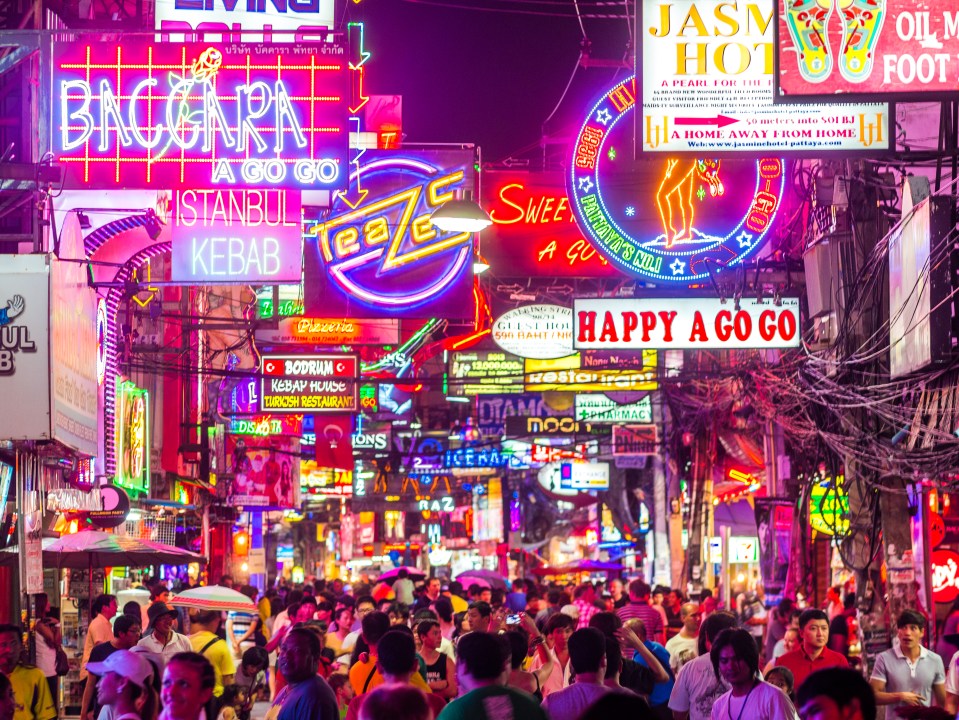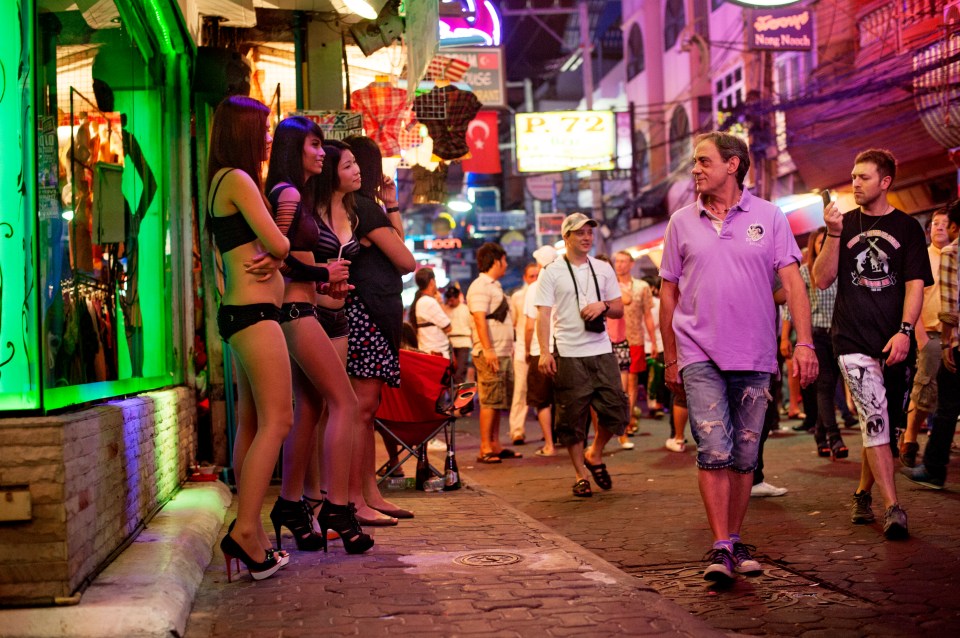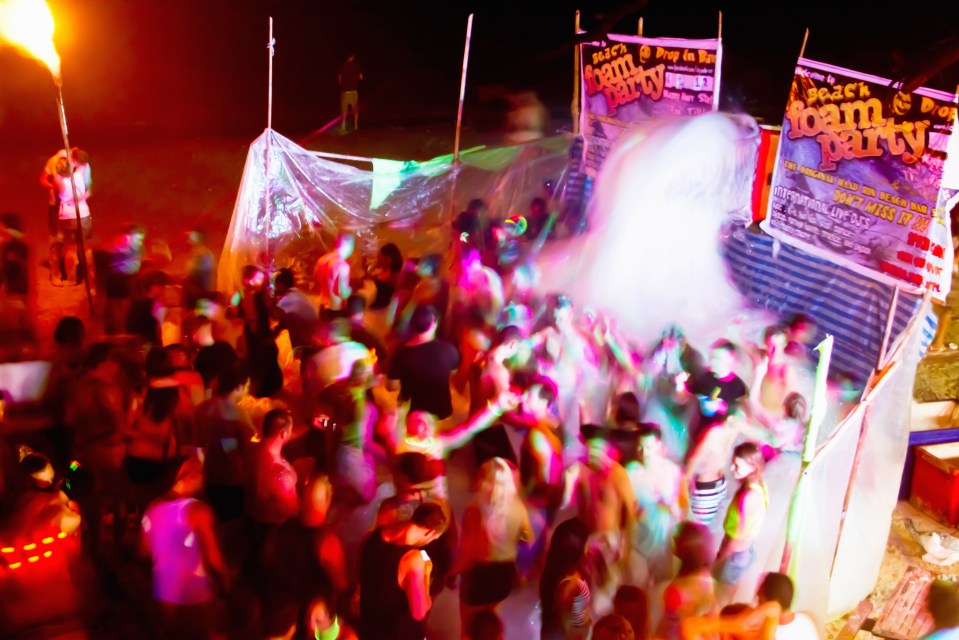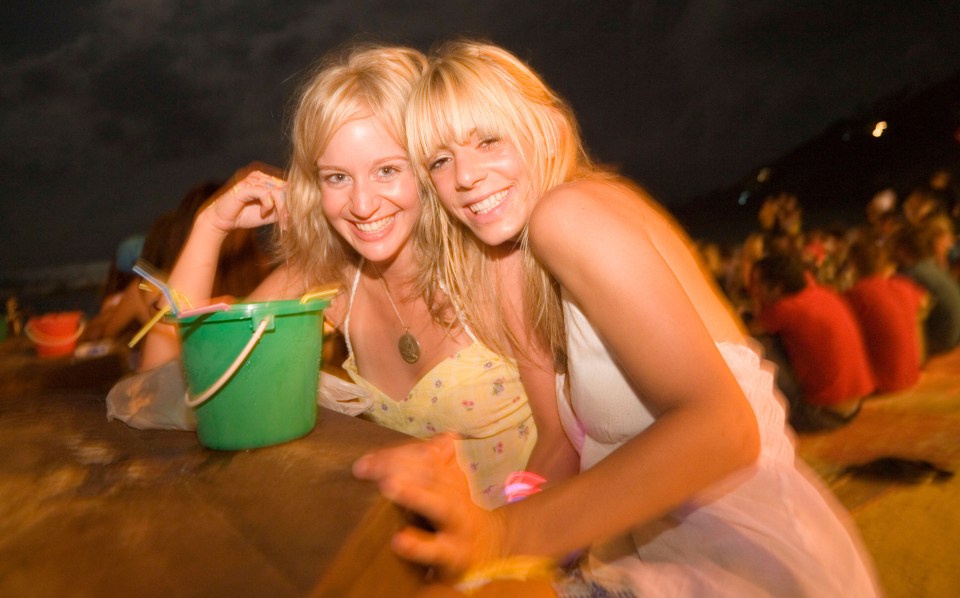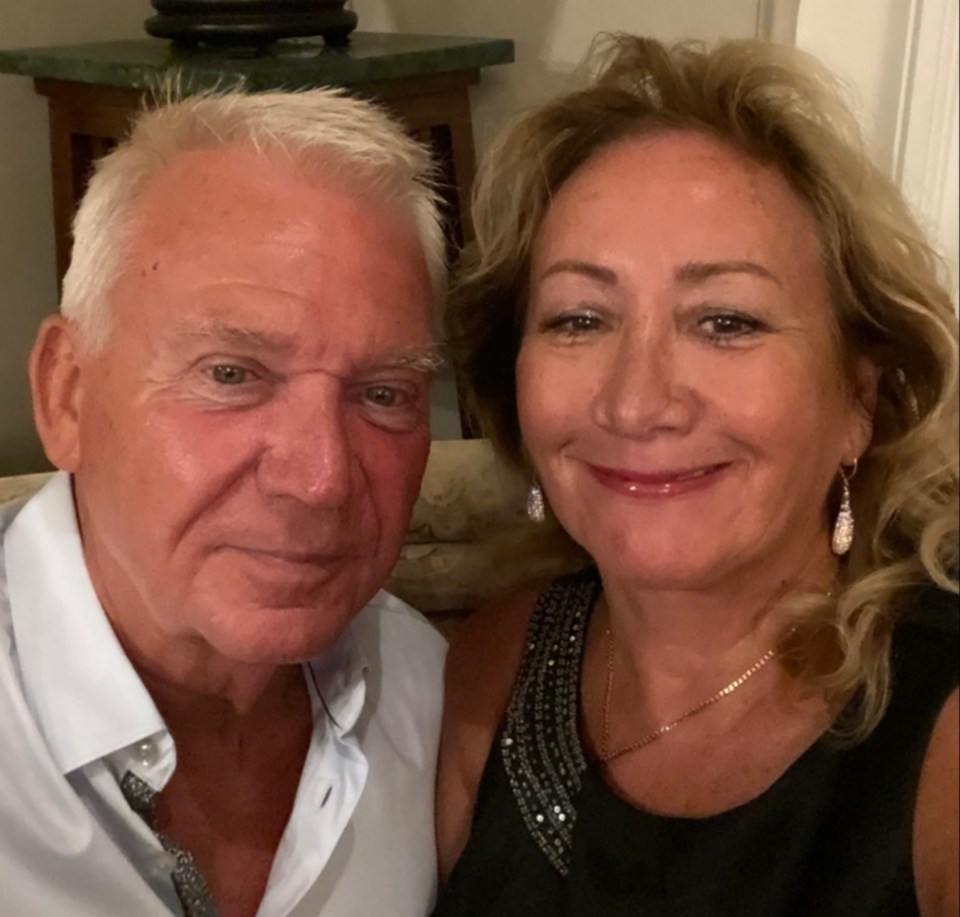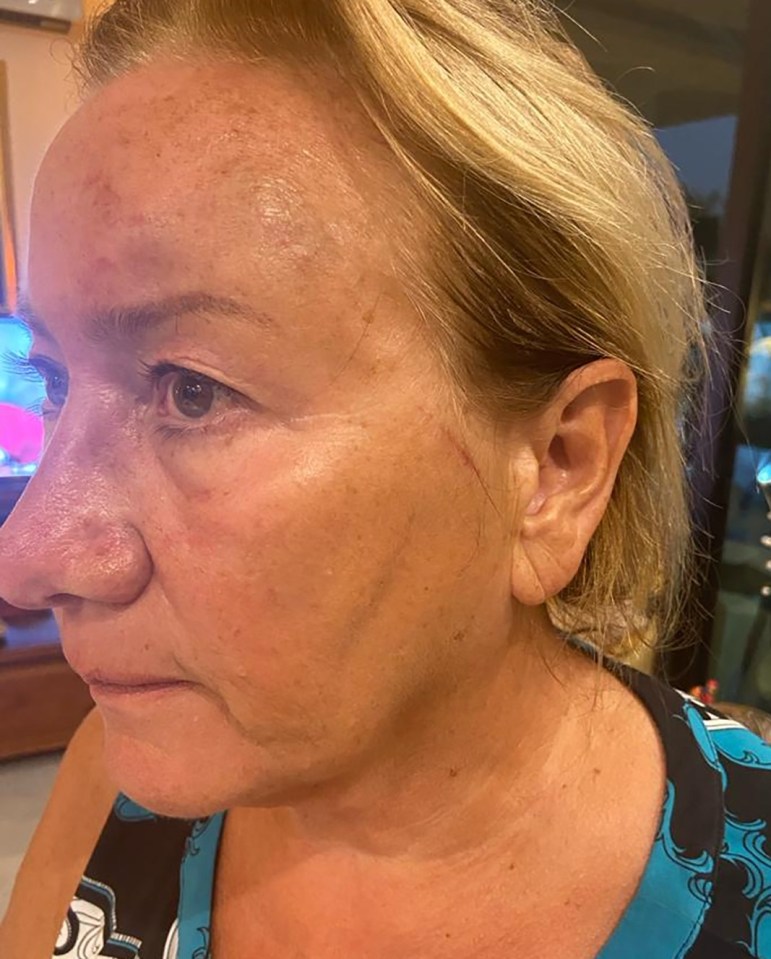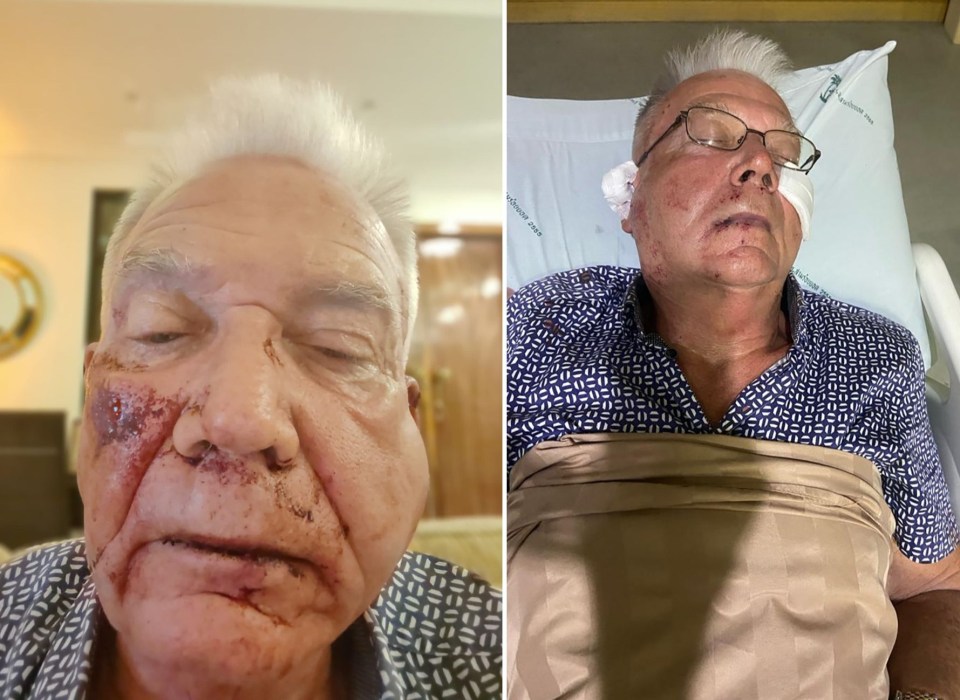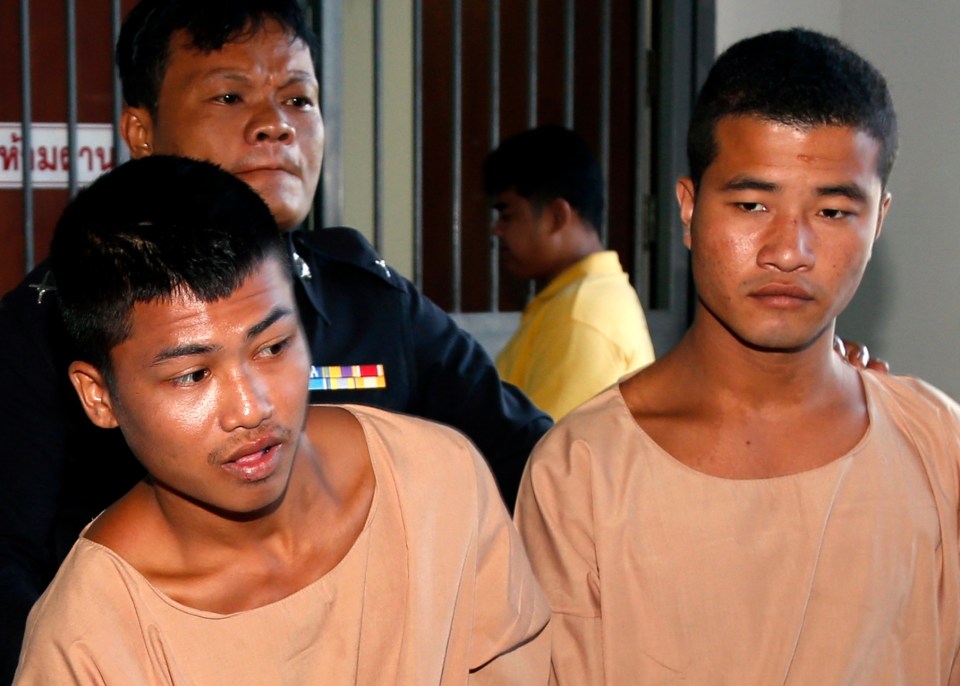TRAVELLERS just can’t keep away from The Land of Smiles thanks to its tropical beaches, electrifying cities and incredibly warm and inviting people.
Bookings to Thailand are booming, driven in some part by the hit Sky Atlantic series The White Lotus.
The current season of the show, which finishes tomorrow, is set on the dream Thai island of Koh Samui.
But, as the characters in the series have discovered, there can be trouble in paradise.
According to data analysts at Statista, Thailand topped the list of countries where Brit visitors were arrested in 2018, with 45 arrested for every 100,000 visits.
Some get away with a fine, or even a bribe, while others arrested on suspicion of serious offences such as drug trafficking find themselves locked up for years and can even face the death penalty.
Some Brit tourists never return after falling victims to shootings, poisonings, or dying in unexplained circumstances.
Those who do get locked up find conditions in Thai jails can be horrific.
Thrown in jail
Jude Hill experienced this first-hand on Christmas Eve 2024.
She’d been enjoying a festive night out in the party town of Pattaya, when two men tried to pull her off the street.
She didn’t know who they were and, terrified, she struggled to get away.
The mum-of-one from Plymouth was even more scared when one of the men tried to handcuff her.
Screaming to be let go, Jude, 43, was dragged down the road and handed over to uniformed police officers who marched her to a police station and threw her in a stinking jail cell.
She was later accused of breaking a glass coffee table in a hotel lounge, which she vehemently denies.
A video of the ordeal filmed by an onlooker went viral.
It shows Jude worse for wear and clearly distressed as the men grappled with her.
It is not clear whether they were officers or not.
One was wearing a red civilian jacket and had a lanyard around his neck and a walkie talkie on his belt. The other was in a plain red polo shirt and black trousers. He can be seen yanking Jude’s hair.
A British man tried to intervene but his pleas on the distressed woman’s behalf were ignored.
“It was horrible,” Jude tells Fabulous. “I was terrified and didn’t know what was happening. I didn’t know what I was supposed to have done.”
‘Police asked for cash’
After several hours, Jude’s 18-year-old son arrived at the police station where she was being held.
There was a hole in the floor for a toilet and faeces and urine everywhere. The floor was concrete and all I had to rest my head on was a bottle of water
Jude Hill
“They asked him for money,” she says. “It was a negotiation. They wanted more at first and then they dropped the rate. I was eventually told to pay 30,000 Baht, which is £750. They said you either pay it or go to jail.”
A friend lent the cash, which was handed over to the police.
“As soon as they got the money, they let me go,” explains Jude.
She doesn’t know whether the payment was an official fine or a bribe. “There was no formal legal process, no documentation and no forms to fill out,” she says.
Jude’s story is not unusual.
Diana* is another Brit who was recently arrested following a dispute over a fee with a local who then made a complaint to the police.
She was detained for several days and her passport was seized. She then spent thousands of pounds on fees and payments to officials before she managed to get her passport back and was able to leave the country.
‘Waiting for money’
“One of the lawyers explained to me: ‘you’re a foreigner so the police know there’s going to be money. They just sit back and wait for the money’,” she says.
“As I was being processed the police kept asking how much money do you have? Then they said I was facing serious charges and several years in jail. At first, I knew it was a mistake and trusted the judicial process but as it went on, I realised the only way I was getting out was by paying money.”
Diana was held in a cell with a hole in the floor for a toilet and the only privacy was provided by a three-sided three-quarter-height wall.
“There was a man in the cell next to me and whenever I used the toilet he stood by the bars of his cell and watched,” she shudders.
At one point she was given a wad of documents to sign. They were all written in Thai.
“I said I can’t sign this. I don’t understand it. They were very aggressive and said: ‘Sign it. You have no rights here. You’re a tourist’. It was scary and intimidating.”
While in the cells Diana claims she witnessed another tourist being beaten and kicked by guards.
She says he later told her his only crime was to dispute a demand for $16,000 from a hire company, after he accidentally scratched the moped he’d hired.
Eventually, Diana says she could only get back to the UK after paying out over £50,000.
Strict laws
In January this year alone 121,000 Brits were drawn to Thailand by its beautiful beaches, tropical weather, tasty cuisine, and cheap shopping. It tops the list of holiday destinations in internet searches, according to Digital PR agency Reboot Online.
But seasoned travellers and campaigners warn that despite its hedonistic easy-going image, there are several obscure, restrictive laws that Brits should be aware of before they travel.
It is illegal to vape in the country, for example, and anyone caught using a vape or e-cigarettes faces a fine, or even jail time.
Posting images of people drinking alcohol or wearing clothing considered inappropriate can also be illegal, and both the person who uploaded the images and the people in them face fines or imprisonment.
There are stringent anti-drug laws, despite the country’s booming cannabis industry, with devastating penalties for foreigners caught dealing drugs.
Even the laws governing the sale of marijuana are opaque.
Private recreational use of cannabis is legal if the Tetrahydrocannabinol (THC) content is below 0.2% by weight, but using cannabis in public places is illegal.
In practice it’s usually impossible to tell whether products bought in the country’s numerous ‘weed’ shops adhere to official limits.
The Foreign, Commonwealth & Development Office (FCDO) warns: “Some British nationals have suffered severe psychiatric problems because of drug use, sometimes leading to suicide.”
Another law prohibits criticism of the Thai royal family and anyone caught making fun of the monarchy can receive a long prison sentence.
‘Tea money’ bribes
Travel writer Ronan O’Connell wrote in blog last year: “While it is rare for tourists to face charges, it can happen. So do not, in any circumstances, say anything negative about Thailand’s monarchy while you’re in the country. Also, do not write anything derogatory about the Thai Royal family online. It’s better to avoid mentioning them altogether.”
He also wrote Thai police sometimes supplement their modest salaries with bribes, known locally as ‘tea money’.
“Be especially wary of police who approach you at night on the street near one of Thailand’s touristy entertainment precincts,” he advises.
“These locations are where travellers most commonly run into unscrupulous officers.”
Even expats living in the country find themselves victims of an often arbitrary legal system.
Des Byrne, 77, and his wife Mary, 69, originally from Middlesbrough, retired to Thailand in 2020.
In December 2023 they were both attacked and badly beaten by their kick-boxing neighbour during a planning dispute. CCTV footage showed they were the victims, and their neighbours admitted the attack.
However, in May last year the couple learned they faced charges for causing injuries and were threatened with jail. Thai authorities confiscated their passports.
In March this year they were found guilty in a Thai court of assault and causing damage. They were given a 20-day suspended sentence and a £400 fine. They avoided jail but had spent their savings on legal fees and had to sell their retirement home.
‘Fed rats’ in jail
In March, Lancashire-born Ellis Matthews, 32, made headlines when she claimed she was being held in an immigration detention centre in Bangkok with her son and fed rats.
The FCDO states: “Conditions in prisons and other detention facilities in Thailand are harsh, with limited access to healthcare. Detainees have died in custody.”
The social media influencer, who boasted that her life in Thailand was funded by British benefits payments (which she later said she made up), was arrested in Pattaya for visa overstay.
Murder & sex assault
In 2013, 19-year-old Stephen Ashton was caught in the crossfire between two warring Thai gangs at a full moon party in the island of Koh Phangan. He was shot in the chest and died.
The following year the bodies of British couple Hannah Witheridge, 23, and David Miller, 24, were found on Sairee Beach on the island of Koh Toa. Both students had been hit several times on the head. Hannah had been raped and David drowned.
Two illegal Burmese migrant workers were charged for the murders. They alleged police tortured confessions from them.
In December 2015, they were convicted of murder and sentenced to death. In 2020 their sentences were commuted to life imprisonment.
The FDCO advises tourists to be vigilant while in the country and warns of a range of risks, including drink spiking and drug-assisted sexual assault in tourist areas around Thailand, with male and female victims.
It also reports violent sexual assaults and unprovoked attacks most commonly happen during the country’s famous full moon parties or similar events, and near bars late at night.
Methanol poisoning from drinks is also a danger.
In November last year six people died in a suspected mass methanol poisoning in neighbouring Laos, including 28-year-old Simone White, from Orpington, south-east London.
And in March this year Alexandra Clarke, 26, from Lambeth, south London, went missing when the diving boat she was on in sea near Koh Tao caught fire.
40 Brits are currently in Thai prisons
Prisoners Abroad is a UK-based charity that supports British citizens imprisoned overseas and their families.
It is currently supporting 40 British prisoners in Thailand.
“Last year, Thailand was the country with the fifth highest number of people we supported, and it is likely to remain in a similar position this year,” the organisation explains in a statement.
“The average sentence length for those in Thailand is 13 years, although the longest sentence we currently have on record is 40 years.”
The charity warns that prison conditions in Thailand are very poor.
“Food and water provision is often not adequate, so we send survival grants which help people purchase the basics they need to get by; in the last year, we have made 122 grant payments totalling over £11,000 to people we are supporting in Thailand,” it says.
“Poor conditions, including lack of food, water and sanitary provisions, can leave people at much higher risk of developing health complications, so people we are supporting in Thailand often require medical grants, too; so far this year Thailand has received the third highest number of medical grants for things such as HIV medication, hospital visits, and CT scans.”
For Brit travellers, Thailand is replacing expensive European holiday hotspots thanks to cheap food, booze and accommodation. And well-heeled visitors are drawn by its luxury wellness resorts. Increasingly, elderly Brits are even choosing Thai old peoples’ homes as a retirement option. Most visits to the nation known as the land of smiles go without a hitch. But sometimes there is darkness behind the smile.
*Name has been changed
Travel Advice for Thailand is available here: Thailand travel advice – GOV.UK


